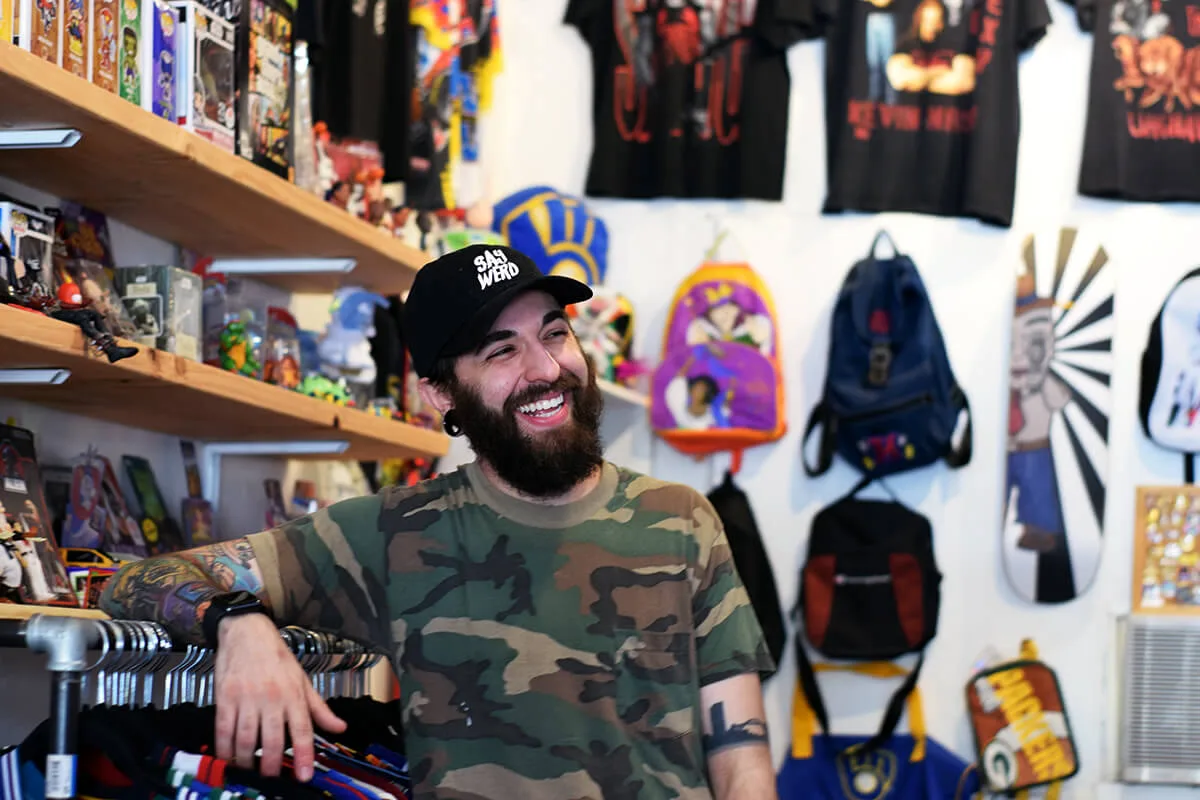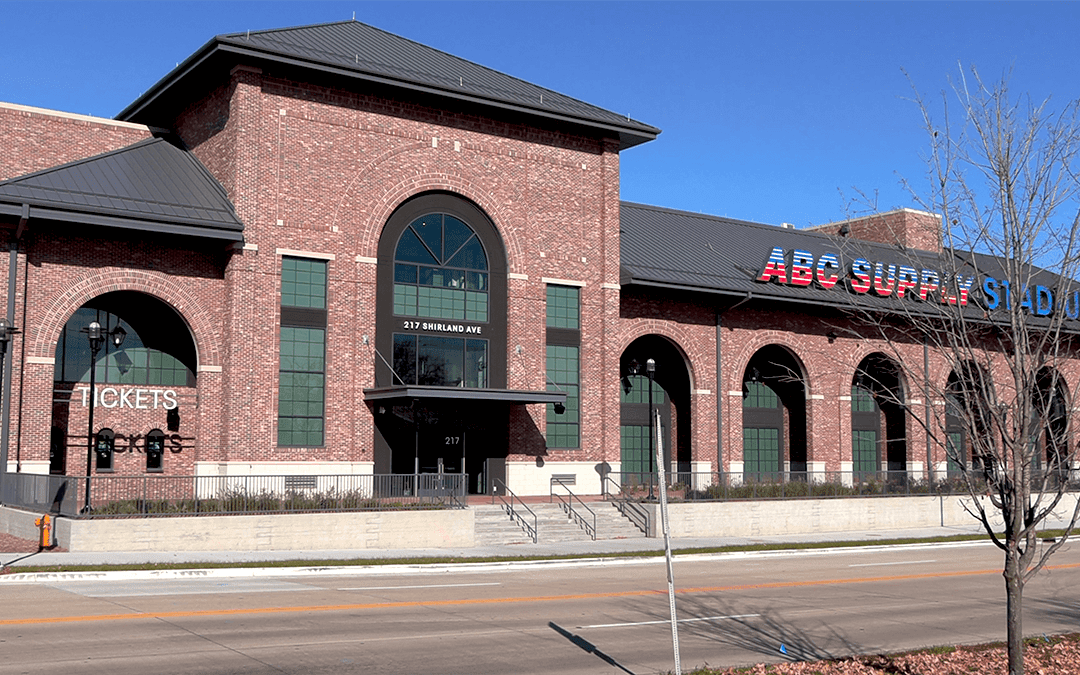
#image_title
#image_title
Just as Benny Tralongo signed a lease on a storefront, the world ground to a halt. It turned out to be a blessing in disguise for his clothing and collectibles business.
On March 2, 2020, when the coronavirus pandemic was just beginning to become a major concern in the US, Benny Tralongo signed a lease on a storefront on Milwaukee’s East Side.
On that day, Wisconsin had just one confirmed case of COVID-19. But by the time Tralongo got the keys to the storefront on April 1, the state had seen 1,700 cases and Gov. Tony Evers’ Safer at Home order had been in effect for a week.
Faced with a situation flush with uncertainty, Tralongo cautiously opened his store, SayWerd—which sells both original and vintage clothing and collectibles—for private appointments in May 2020. He had a grand opening a little over a month later in June.
“I had so many people go, ‘You were nuts for opening a business now! You’re crazy!’” Tralongo said on a recent Friday at his shop. “And I’m like, 100%. One hundred percent, if someone told me that they were gonna do it, I’d be like, ‘Are you good?’ But something inside me, I was like, this is right.”
Business has been better than Tralongo could have hoped. SayWerd has garnered a dedicated clientele, he said, with people coming to browse the clothing racks and collectible shelves or trade in new items on a regular basis.
PREVIOUS COVERAGE: What It’s Like to Open a Small Business During the Coronavirus Pandemic
And as the customer base has expanded, so have the store’s offerings, with new toys, trading cards, video games, and more now packed into every square inch of usable space, with plenty of stock in storage.
SayWerd’s success is reflective of other vintage resale stores throughout the country during the past year. The markets for vintage clothing and collectibles like trading cards, video games, and toys exploded as people embraced nostalgia and new hobbies during a dark time of sickness and death.
In that regard, the pandemic helped Tralongo. “Which is weird to say,” he was quick to add. “Because you don’t want to be inconsiderate of people who have faced hardships during this time, but it was truly beneficial for me business-wise.”
Tralongo has already outgrown his small storefront and will likely move into a bigger space once his current lease expires. It’s a drastic turnaround from how things could have turned out. Before Tralongo opened the storefront, he made most of his sales at concerts, festivals, and other events—opportunities that evaporated with the pandemic’s arrival.
“To open a store and have a spot for people to come to on a daily basis saved me,” Tralongo said. “Oh my God, it saved me, and I don’t regret it at all.”
Politics

Biden makes 4 million more workers eligible for overtime pay
The Biden administration announced a new rule Tuesday to expand overtime pay for around 4 million lower-paid salaried employees nationwide. The...

Biden administration bans noncompete clauses for workers
The Federal Trade Commission (FTC) voted on Tuesday to ban noncompete agreements—those pesky clauses that employers often force their workers to...
Local News

Readers Poll: Top Bowling Alleys in Wisconsin
Looking for the best bowling in Wisconsin? Look no further! Our readers have spoken in our recent poll, and we have the inside scoop on the top...

8 Wisconsin restaurants Top Chef judges are raving about
Top Chef’s 21st season is all about Wisconsin, and on-screen, it’s already apparent that the judges feel right at home here. But, while filming in...



